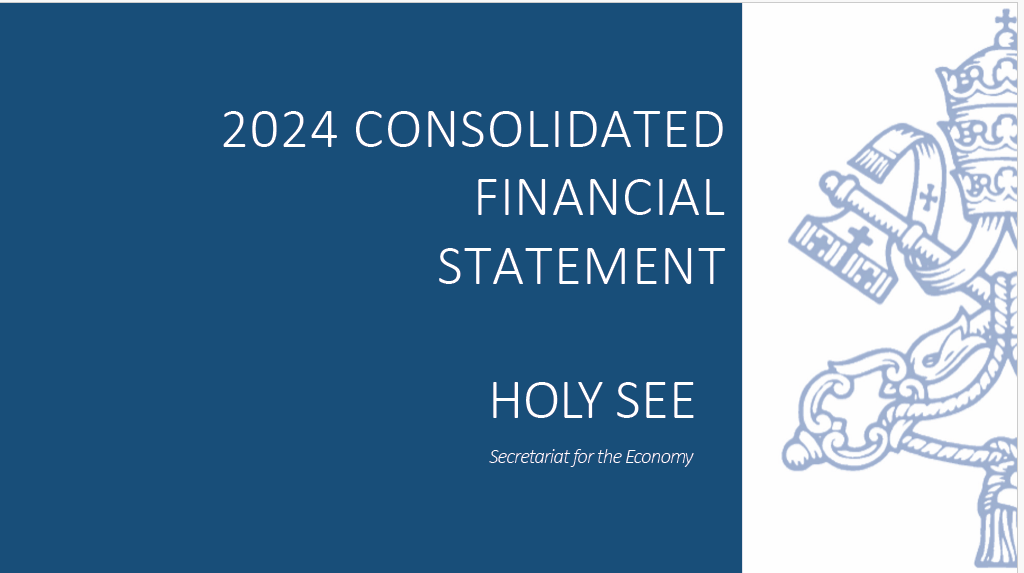The Holy See has published its consolidated financial statement for 2024, the first complete picture of Vatican finances to be published during the pontificate of Leo XIV, and the news is mixed.
On the one hand, the structural operating deficit reported for 2024 is only a little more than half that reported for 2023. The 2024 report – a high-level snapshot of the Vatican’s financial situation – showed a €44.4 million shortfall, down from €83.5 million in 2023.
The various institutions of the Holy See also posted a budget surplus of €1.6 million, after several dismal years including 2023, which saw the same €51.2 in the red.
On the other hand, a significant portion of the closure in the gap came from donations – notoriously unreliable – and other short-term sources.
“The increase,” said the prefect of the Secretariat for the Economy, Spanish layman Maximino Caballero Ledo, in an interview with the official Vatican Media outlet on Wednesday, “is attributable to the growth in donations, the positive results of hospital activities, and the progress recorded in real estate and commercial management.”
Pope Leo XIV, who only came to the papal office in May of 2025, has been fairly tight-lipped about the troubled financial position of the Holy See, with his only public comment being a remark to Elise Ann Allen of Crux.
“I don’t think the crisis is over,” Leo told Allen this summer – after some early data suggesting some improvement – and acknowledged, “we have to continue to work on this.”
“I’m not losing sleep over it,” the pontiff said, “and I think that it’s important that we communicate a different message.”
RELATED: Pope Leo tells Crux’s Elise Ann Allen about the Curia and Vatican finances
Vatican Media used the pope’s remarks to Allen as the premise of a question to Caballero, regarding the interpretation of the data. Can the report be taken to show how the Holy See’s mission has become more sustainable?
“After years of slowdown,” Caballero said, “the fact that contributions have shown growth gives hope for a renewed participation of the faithful and local Churches in the Holy See’s mission.”
Caballero called the development “a positive fact, suggesting a climate of greater trust,” but urged caution.
“[W]e recognize that these dynamics can change over time and always require prudence and realism in their interpretation,” he said.
Leo XIV has taken some early steps toward organizational reform, including the repeal – in late September – of a Francis-era law consolidating control of curial dicasteries’ assets and prohibiting curial offices and outfits from using international banks for business operations.
The elephant in the room, however, continues to be the Holy See’s pension liability, reported to be at least €1.5 billion.
The 2024 financial report does not touch that issue, but Pope Leo has acknowledged it is a concern.
“There is a pension fund that does have to be looked at,” Leo told Allen. “I don’t know of any country in the world that’s not crying about ‘our pension fund is going to go broke in 30 years or 20 years’,” he said.
“That’s a universal issue that has to be looked at and can be dealt with,” Leo said, before saying he intends to proceed carefully and with planning.











